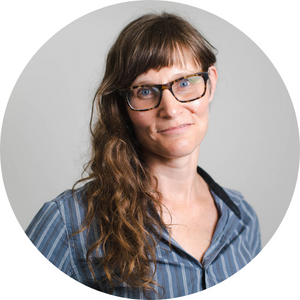Higher income and savings potential
The most obvious benefit to the DINK lifestyle is (hopefully) dealing with fewer financial responsibilities. Forget having to budget for extra groceries, health care, child care, education costs, Christmas and birthday parties, and so on. You can probably even live in a smaller and cheaper home — or at least not have to worry about good schools in the neighborhood.
Ideally, this will leave you more room in your budget for fun activities like dining out or travel — and also to build your savings.
As long as you plan and budget wisely, it's a great opportunity to build solid retirement savings.
Invest in real estate without the headache of being a landlord
Imagine owning a portfolio of thousands of well-managed single family rentals or a collection of cutting-edge industrial warehouses. You can now gain access to a $1B portfolio of income-producing real estate assets designed to deliver long-term growth from the comforts of your couch.
The best part? You don’t have to be a millionaire and can start investing in minutes.
Learn MoreLack of support as you age
However, you may need all that extra cash to save for expenses later in life. One of the biggest counter-arguments for choosing not to have children is the lack of built-in social support many older Americans rely on as they age.
And going it alone has a price tag for some. A 2021 report (based on data from 2018) done by the U.S. Census Bureau revealed that while older childless adults have a higher median personal net worth compared to older parents, they’re also associated with a higher poverty rate. Essentially, while there are many wealthy DINKs, there’s also a significant number being left behind financially.
Unfortunately, there’s no way to know for sure which situation you’ll end up in as there are likely other factors that contribute to this disparity.
Older childless adults are also more likely to require paid care as they age, like moving to a long-term care home or hiring a caregiver to help out. And that’s a pricey prospect.
More flexibility in your career
When you’re not a caregiver, you could be opening yourself up to more career opportunities. You won’t need to take parental leave or, say, leave work early to pick your kids up from school.
This could potentially lead to increased job satisfaction and a higher salary or promotions down the road.
And your time outside of your regular 9-to-5 could be a lot more flexible, making it easier for you to take on a hobby, side hustle or even generate some passive income.
The richest 1% use an advisor. Do you?
Wealthy people know that having money is not the same as being good with money. WiserAdvisor can help you shape your financial future and connect with expert guidance . A trusted advisor helps you make smart choices about investments, retirement savings, and tax planning.
Try NowFewer tax benefits
The tax perks associated with being a parent might not be the first thing that comes to mind when deciding whether or not to expand your family, but they really can significantly lower your tax bill each year.
As a parent in the U.S., you can claim the Child Tax Credit, which nets you $2,000 per child. However, it is non-refundable, which means it can only bring your tax bill down to $0 and you won’t be refunded the excess amount.
Additionally, while the refundable earned income tax credit is open to everyone, taxpayers can claim more money the more children they have.
In fact, you could get up to $7,430 if you fall under the required income threshold and have three or more qualifying children in your household for the 2023 tax year. In comparison, taxpayers with no children qualify for a maximum of $600.
The richest 1% use an advisor. Do you?
Wealthy people know that having money is not the same as being good with money. Advisor.com can help you shape your financial future and connect with expert guidance . A trusted advisor helps you make smart choices about investments, retirement savings, and tax planning.
Try it now









